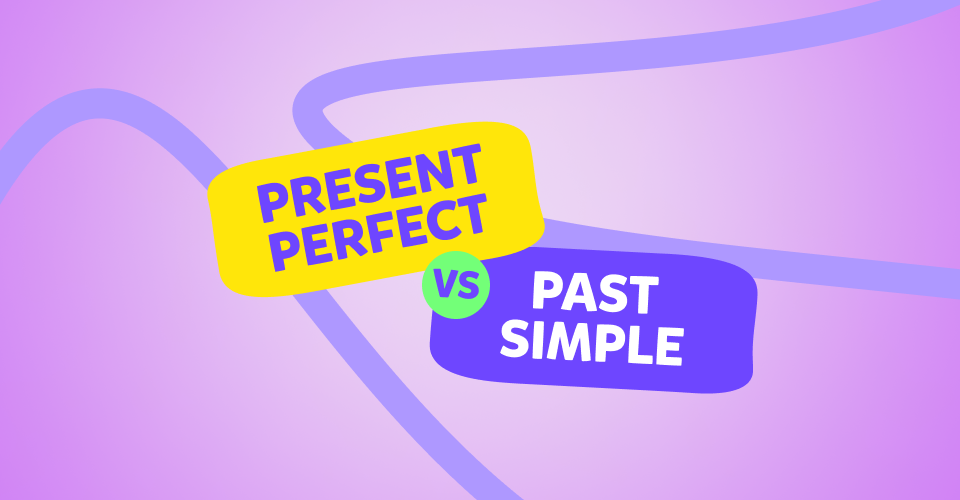Hello, English learners! Today, in the third of our blogs about potentially confusing tenses, we’re going to talk about the Present Perfect Simple and the Past Simple. These tenses can be tricky because they are used in different ways in British and American English. But don’t worry—we’ll keep things simple and easy to understand!
What Are These Tenses?
Let’s start by understanding the two tenses.
1. Present Perfect Simple
This tense is formed with have/has + past participle. We use it to talk about actions that connect the past and the present.
Examples:
- I have visited London.
- She has finished her homework.
2. Past Simple
This tense is formed by using the verb + -ed for regular verbs, or the second form of irregular verbs. We use it to talk about actions that are completely in the past.
Examples:
- I visited London yesterday.
- She finished her homework last night.
When Do We Use Each Tense?
Present Perfect: When the Past Meets the Present
We use the Present Perfect when something in the past still affects the present or when we are talking about experiences without a specific time.
- Life experiences (no time mentioned):
- I have been to Paris. (We don’t know when, but it’s important that I’ve been there.)
- She has never eaten sushi. (This is something she hasn’t done yet.)
- Unfinished time periods:
- I have read three books this week. (The week is not over yet.)
- We have worked hard today. (The day is still happening.)
- Recent actions (results are important now):
- I have lost my keys. (I can’t find them now.)
- He has broken his arm. (His arm is still broken now.)
Past Simple: Completed Actions
We use the Past Simple when an action is completely in the past and does not connect to the present.
- Specific times in the past:
- I visited Paris last year. (We know when it happened.)
- She called me yesterday. (This happened at a specific time.)
- A series of actions in the past:
- I woke up, ate breakfast, and went to work.
- They played football and then watched a movie.
British English vs. American English
English speakers from the UK and the USA sometimes use these tenses differently.
In British English:
The Present Perfect is often used to talk about recent actions or life experiences.
Examples:
- I have just eaten lunch.
- She has already finished her work.
- Have you ever visited Scotland?
In American English:
Americans often use the Past Simple in situations where British people use the Present Perfect.
Examples:
- I just ate lunch.
- She already finished her work.
- Did you ever visit Scotland?
Common Mistakes (and How to Avoid Them)
1. Using the Past Simple for Experiences Without a Time
Incorrect: I went to Paris. (This sentence is unclear because it doesn’t tell us when.)
Correct: I have been to Paris.
2. Using the Present Perfect with Specific Times
Incorrect: I have seen her yesterday.
Correct: I saw her yesterday.
3. Forgetting the British-American Difference
- British: I have just finished my homework.
- American: I just finished my homework.
It’s helpful to know which version of English you are learning. If you’re speaking to British people, use the Present Perfect more often. If you’re speaking to Americans, the Past Simple might sound more natural.
Quick and Easy Rules
Here is a simple way to remember when to use each tense:
| Use Case | Present Perfect | Past Simple |
|---|---|---|
| No specific time | I have visited Spain. | ✘ |
| Specific time mentioned | ✘ | I visited Spain in 2019. |
| Recent actions | I have just finished my lunch. | I just finished my lunch. (US) |
| British vs. American | Have you already seen it? (UK) | Did you already see it? (US) |
Examples to Practice
Let’s look at a few examples and decide which tense is correct:
- I _____ (see) that movie yesterday.
Correct: I saw that movie yesterday. (Past Simple, because we know the specific time.) - She _____ (visit) Japan three times.
Correct: She has visited Japan three times. (Present Perfect, because no time is mentioned.) - We _____ (be) friends since childhood.
Correct: We have been friends since childhood. (Present Perfect, because the action continues to now.) - They _____ (move) to New York last month.
Correct: They moved to New York last month. (Past Simple, because we know when it happened.)
In Summary
Here’s a simple way to think about it:
- Use the Present Perfect for actions that still matter now or when you don’t mention a specific time.
- Use the Past Simple for actions that are completely in the past, with no connection to now, and when you say exactly when they happened.
And remember:
- British English loves the Present Perfect.
- American English is a bit more relaxed and often uses the Past Simple.
Keep practicing, and soon these tenses will start to make sense!
If you have enjoyed reading this blog, please ‘like’ it and share it with your friends and colleagues, and if you know anyone who might be interested in my online one-to-one lessons, please do ask them to contact me to discuss how I can help them to excel in English.


Recent Comments